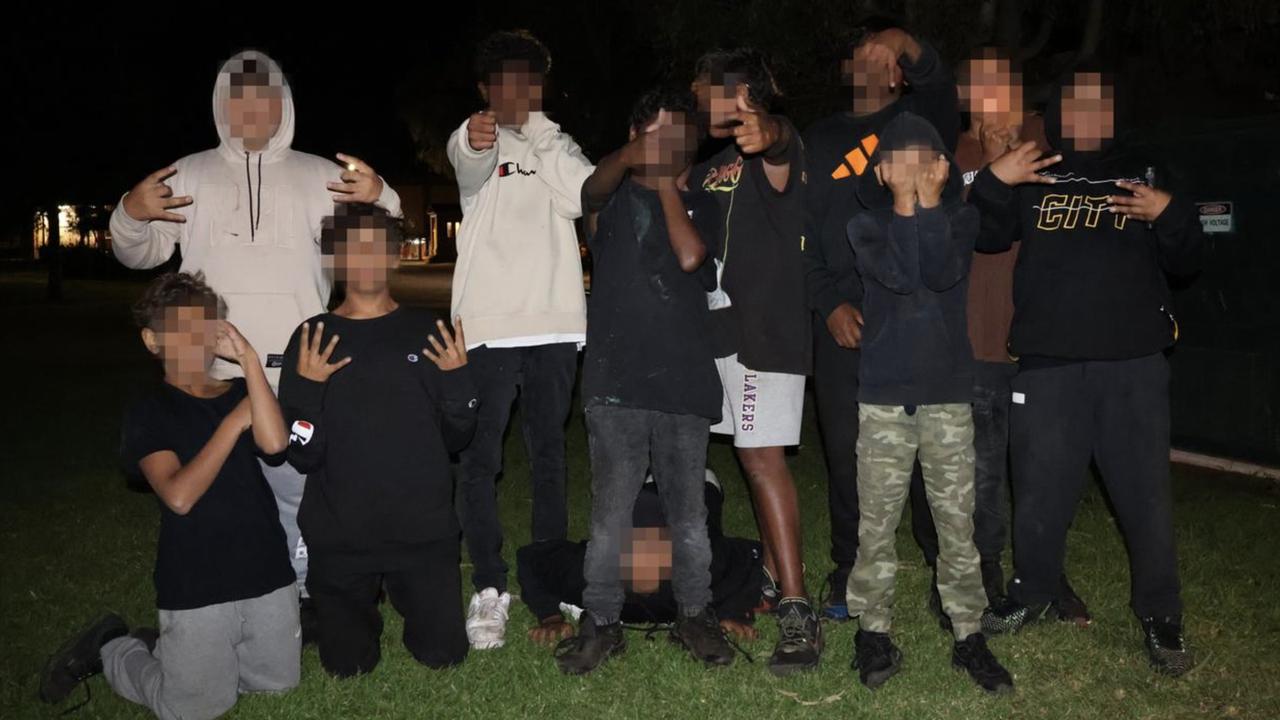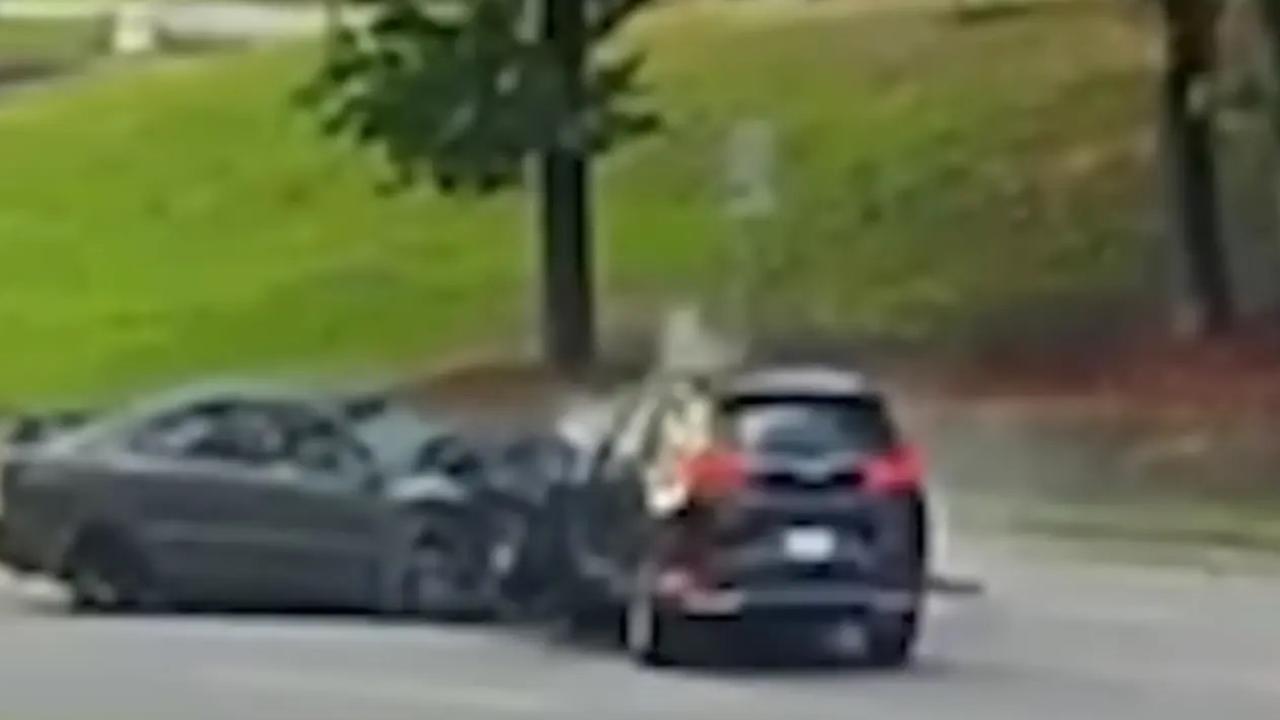Bittersweet anniversary for the survivor of the single biggest family tragedy of the Bali bombings
AT THIS time of the year, every year, a feeling of dread starts to build in the pit of Maria Kotronakis’s stomach. A family tragedy is haunting her.
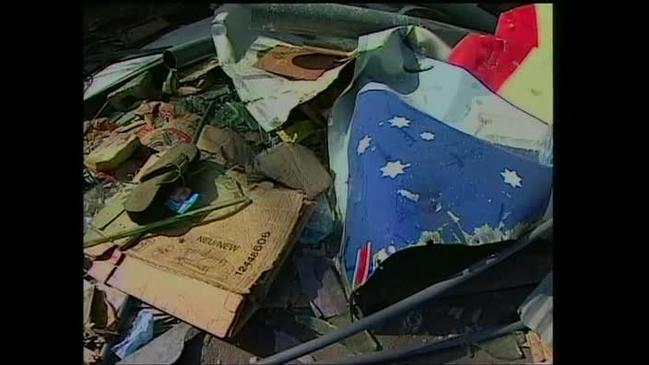
AT this time of the year, every year, a feeling of dread starts to build in the pit of Maria Kotronakis’s stomach.
It’s not that at other times of the year the hurt ever goes away. Not a day goes by that Maria doesn’t think about her sisters, Dimmy her cheeky twin, Elizabeth, six years older, and their two cousins Christine Betmalik and Louiza Zervos.
In Maria’s Facebook posts she is always talking about “my sisters, my angels, my everything” and saying “if only you were both here”.
But as the anniversary approaches, the dread returns and Maria, by her own admission, gets “anxious, moody and short-tempered”.
The anniversary is on October 12, the date in 2002 on which the Islamic terrorists known as the Bali bombers tore apart two nightspots crammed with foreigners on the island’s famous Kuta Beach, and tore apart Maria’s life.
But this year, the 14th since Elizabeth, 33, Dimmy, 27, Louiza, 33, and Christine, 29, died in the single biggest family tragedy of the Bali bombing that killed 88 Australians, is particularly bittersweet for Maria.
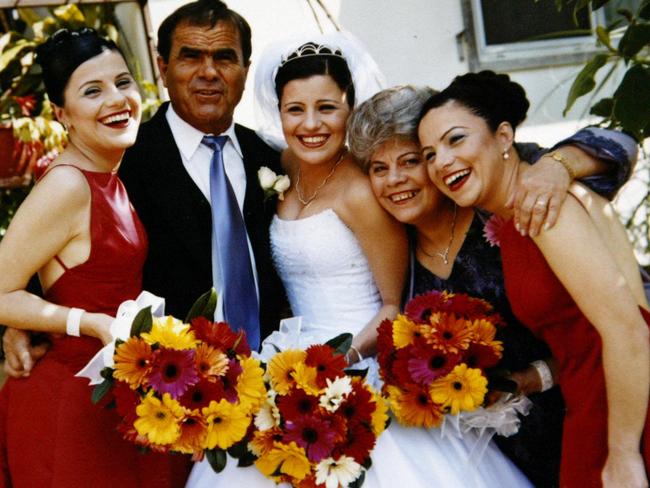
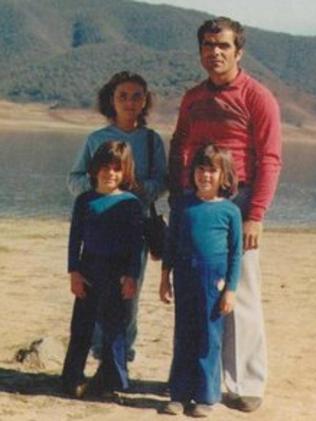
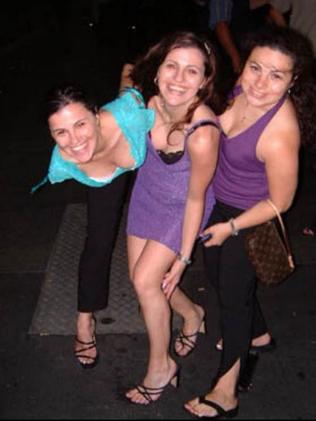

Maria, who was married, has since met her soulmate, a fellow Greek Australian named Steve Konitsas and the in-love pair plan to marry.
The couple’s romance has brought their families and friends much joy after the tragedy which changed Maria forever.
“He’s a bit of a rough diamond. I had been single for so long, but I was happy,” Maria told news.com.au.
“I didn’t think I was every going to allow anyone into my life and so at first we didn’t want to rush, wanted just to take things slowly.
“How he got in there is beyond me, but next thing we’re joined at the hip. He’s my everything.”
But at the same time Maria’s mother, Vicky Kotronakis, had become ill and is now dying from cancer.
“We have no date because my mum is ill. They haven’t said how long, but she doesn’t want us to get married before she passes,” Maria said.
“She told us she wants to see my sisters [Dimmy and Elizabeth] up there and she doesn’t want us to mourn, or worry and be upset.
“I am going to be upset. She has been scared of what is going to happen to me and my dad.”
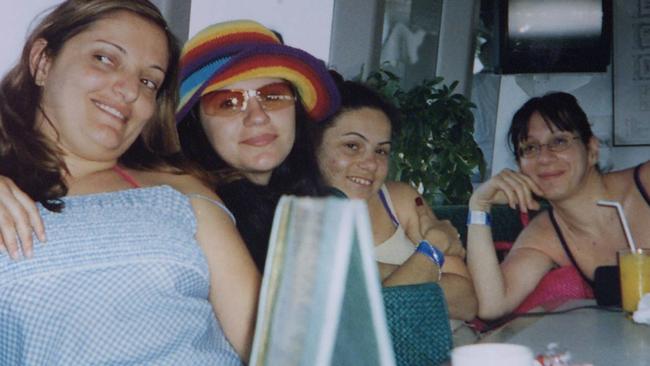
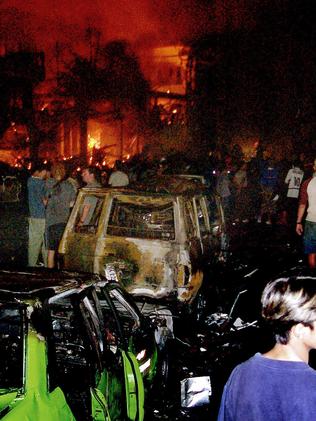
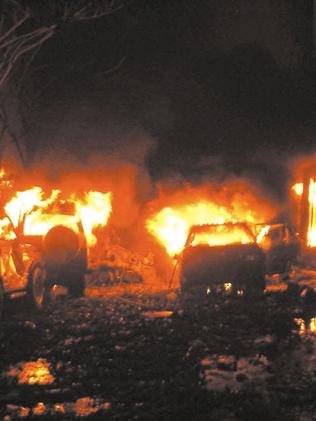
It seems a lifetime ago that Maria enjoyed the normal existence of her happy, loving family.
Her parents, Vicky and Peter had met as children in Greece’s Peloponnese region, emigrated to Australia and married in 1966 in Sydney.
Their eldest child, Elizabeth, was born at Camperdown Hospital in 1969.
After the twins, Maria first and Dimitra three minutes later, came along in 1975, the family moved to Blacktown.
Peter, a truck driver, taught his girls to stand up for themselves, saying “Never let anyone push you around”.
The girls were football mad, skied and swam and did everything together.
Lizzy had a nurturing side which meant she was always mothering the younger twins. Dimmy was a football-obsessed passionate Parramatta Eels supporter who even named her dog K-La after a player.
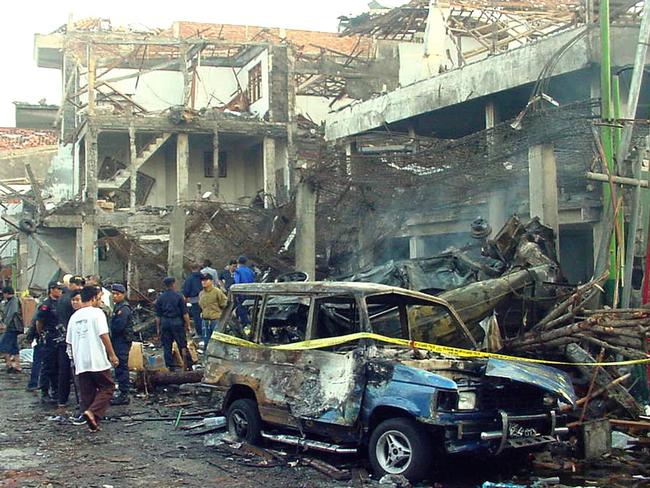
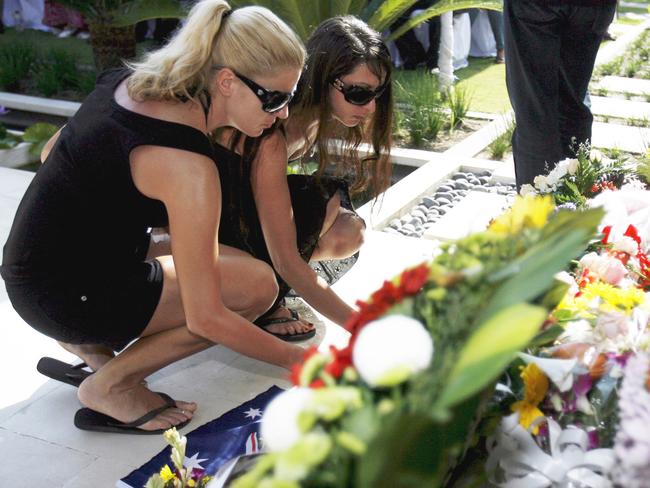
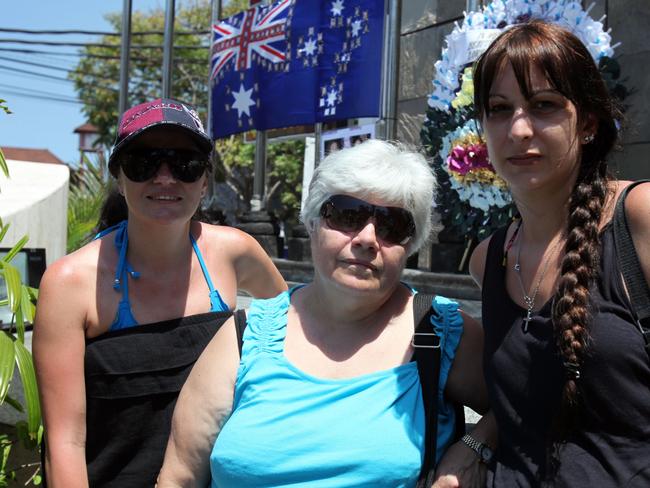
“We fought like sisters, shared like sisters, cried like sisters, laughed like sisters and always argued with Mum about doing the housework,” Maria said.
It was only natural that when Maria decided to get married, that following the wedding, all three sisters and their two female cousins would join in the honeymoon.
Maria flew to Bali on Monday, October 7, 2002. Lizzy, Dimmy, and Christine — Maria’s three bridesmaids — and Louiza followed the next day.
For the next week they shared a lot of laughs. They were a lively group among many sets of families and friends enjoying the week in Bali that led up to Saturday, October 12.
Maria and the four girls took a cruise, raced each other in the pool, shopped, drank and shopped some more.
On the Saturday evening, Maria had a migraine and decided to stay at the hotel.
At 9pm, Lizzy, Dimmy, Christine and Louiza headed for Jalan Legian, the main street at Kuta Beach where Australians and other tourists crammed into the nightclubs, the Sari Club and Paddy’s Bar.
The girls, who loved to dance, opted for the Sari Club where between 300 and 350 people, mostly Australians, packed the dance floor.
It was 13 months since a terrorist group called al-Qaeda had carried out the 9/11 attacks in New York and Washington.
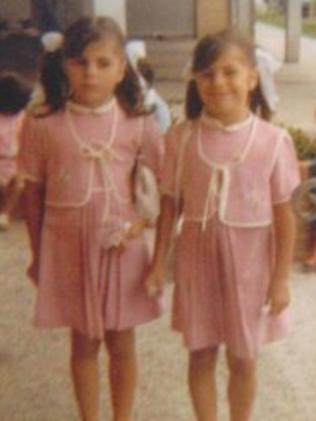
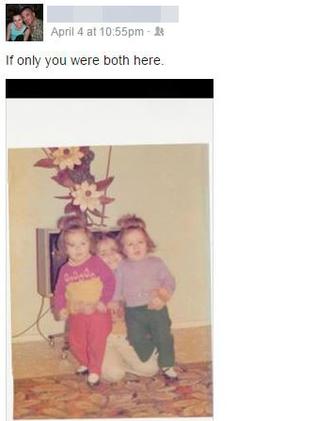
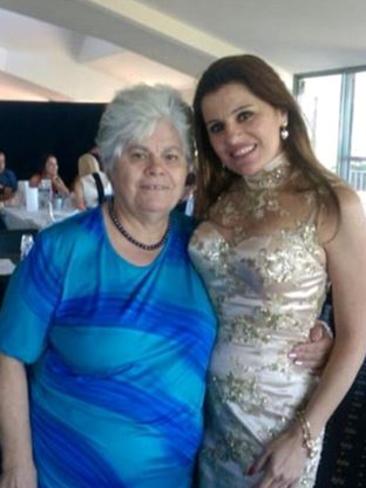
None of the revellers were aware that two weeks earlier an Indonesian al-Qaeda group called Jemaah Islamiah had cased the joints on Jalan Legian, making plans for maximum destruction.
Or that a white Mitsubishi L300 van packed with 700kg of explosives was parked outside the Sari.
At 11.06pm a young man with the jihadi name of “Isa” walked into Paddy’s Bar and at 11.07 detonated the 5kg of TNT in his backpack.
Thirty seconds later the car bomb outside the Sari Club erupts. It is so powerful a blast it registers on Indonesian seismographs.
A fireball engulfs the thatched-roof Sari Club and some of the Australians inside manage to escape.
Early the next morning, Vicky called Maria from Sydney to say she couldn’t track down the girls.
Mrs Kotronakis had learned about the bombs overnight, but was trying to be strong for her newlywed daughter.
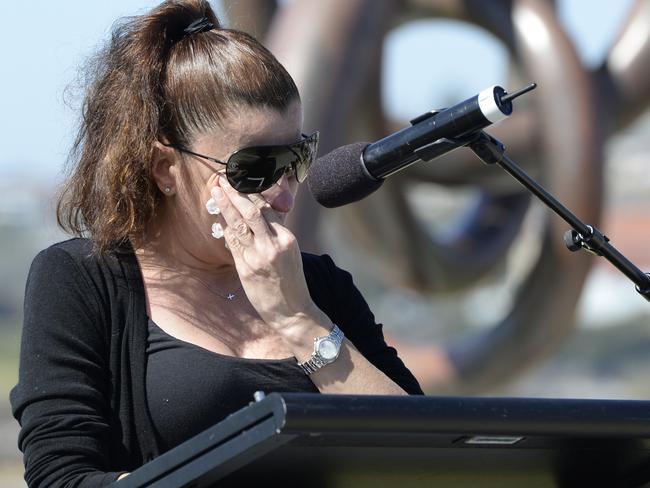
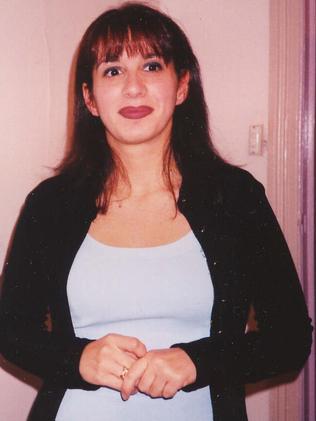
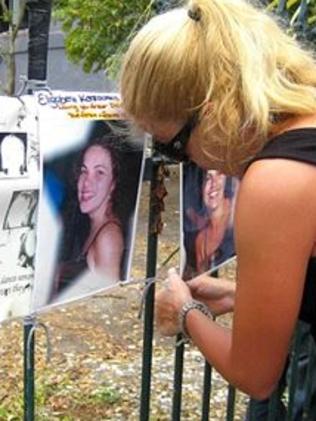
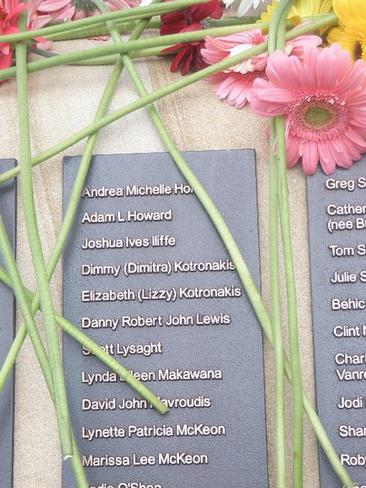
At Denpasar’s Sanglah Hospital, where the injured and the dead are taken, desperate relatives set up boards with lists of missing people and their physical descriptions.
Many survivors had dreadful injuries, most of them suffering terrible burns.
“By Monday night, I knew they were dead,” Maria said.
She searched the morgue at Sanglah for Dimmy and Lizzy, and Christine and Louiza, but didn’t find them.
Flying home without them was hard. Waiting for their remains to be identified and returned back to Australia was harder.
In the weeks which followed, Bali police chief General I Made Pastika and his officers were to identify 25 Indonesians believed responsible for the attacks.
They included young men named Imam Samudra, Idris and three diminutive Javanese brothers, Ali Imron, Muklas and Amrozi, who would become infamous for their laughing disdain of the horror they caused.
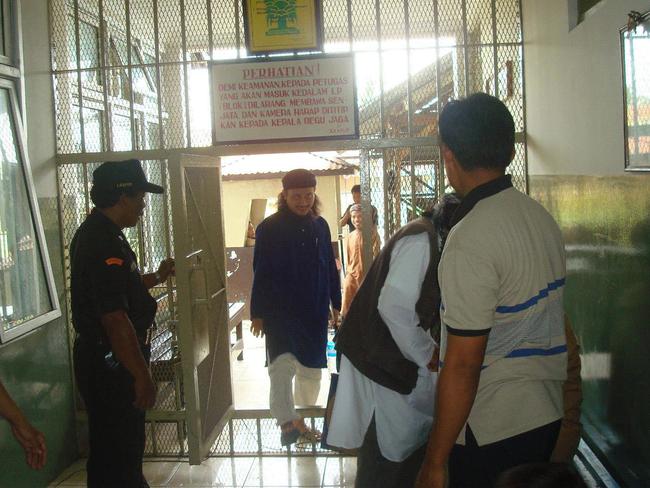
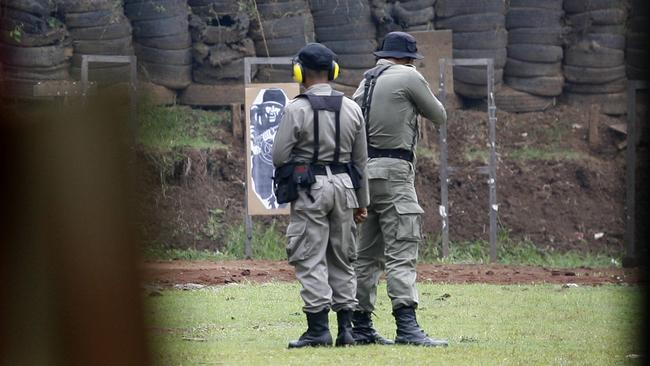
At their homes, police found copies of speeches by Osama bin Laden, and Abu Bakar Bashir, the radical Indonesian Muslim cleric and head of Jamaal Islamiah.
The tragedy changed Maria. She no longer had time for people she didn’t care about, but her sympathy and compassion for victims of crime and terror deepened.
Six years after her sisters’ deaths, three of the Bali bombers were due to be executed. Maria said her father wanted to put the bullets through Amrozi, Muklas and Imam Samudra and she wanted them “wiped off the face of the planet”.
On November 9, 2008, they were. A firing squad shot them dead on Nusakambangan Island in Java, the same place where Bali 9 drug smugglers Andrew Chan and Myuran Sukumaran were executed last year.
For Maria, the perpetrators said their lack of remorse for the lives they took in 2002 meant “they showed no remorse, nothing”.
“They lost their rights to anything that’s human.
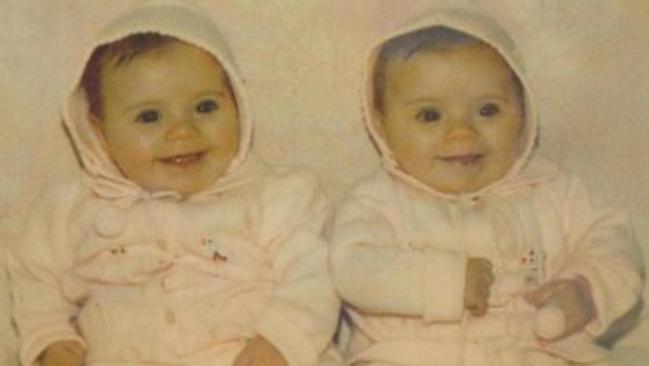
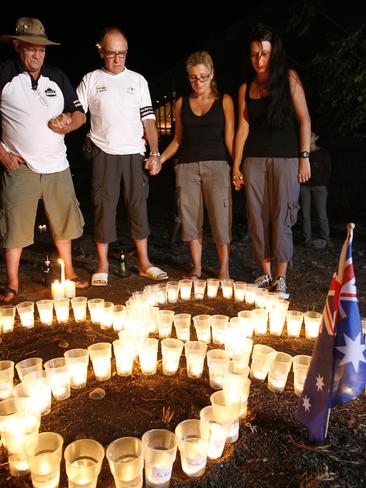
“We lost four beautiful girls that did nothing wrong. Normal people that would get up and go to work every day, live life as much as they could and enjoy themselves.
“There was nothing the girls ever did wrong to have been executed they way they were.”
Last year's Bali 9 executions had Maria fuming at social media comparisons between the executions of the Bali bombers and those of Chan and Sukumaran.
She found the comparisons hurtful and insulting to the memory of her sisters.
In the years since her sisters’ deaths by terrorism and the rise of IS terrorists in Australia and Syria, she has become stridently forthright in her lack of sympathy for fanaticism.
“We stop them going over to Syria to fight? I say let them go. Bye Bye.
“We don’t need them here.
“They say bring the Sharrouf kids home. I don’t think so. They’ve seen the evil and they’ve been brainwashed.
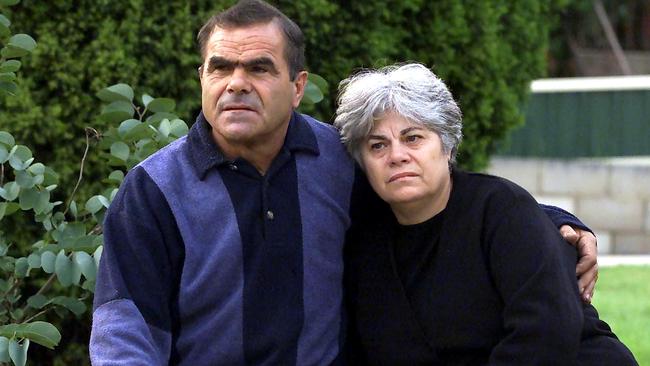
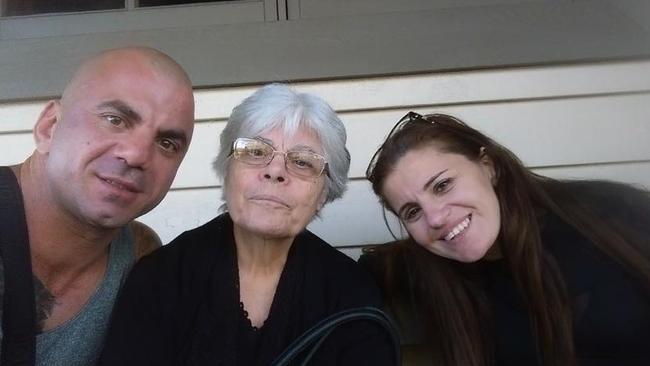
“Their mother took them to a war zone where people are killing each other. “Be a grown up. F*** off.”
Over the years, Maria has received grief counseland help ling, but now she has to help her mother Vicky attend cancer treatments her parents at home.
“I was going to counselling up until I met Steve, but now I don’t have time,” she said. “He’s my sounding board now.”
Maria says her mother will probably not feel well enough to accompany her and Steve this Wednesday to the annual memorial at the Bali bombing memorial at Coogee, in Sydney’s eastern suburbs.
Next year, on the 15th anniversary, Mrs Kotronakis won’t be able to fly with her husband Peter and Maria back to Bali.
“Mum can’t travel,” Maria said. “and she can’t stand up for long.”
The graves of her sisters Dimmy and Lizzy are at Rookwood Cemetery in Sydney, where Peter Kotronakis visits regularly to keep their candles burning in the Greek Orthodox tradition.
Maria is always drawn to Bali, rather than Rookwood to feel close to them.
”I don’t go very often because I don’t feel they are there. My sisters died in Bali. A piece of them will always be there,” Maria told news.com.au.
When she does return to Bali next year Maria will head for a particular spot on the Sari Club site.
“I know where they are,” she said. “I know where they were standing. I feel at peace there.”

